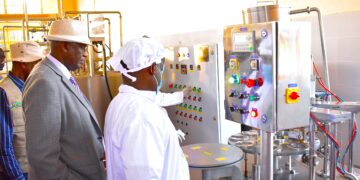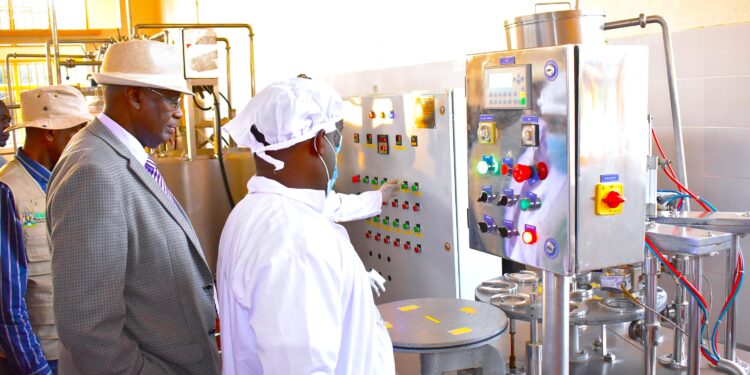The Minister of State for Animal Industry, Hon. Bright Rwamirama has launched a mini dairy processing plant in Kiboga District as part of the government’s efforts to promote value addition for agricultural produce.
The Minister presided over the opening of a plant operated by Dwaniro Dairy and Livestock Cooperative Society which will produce yogurt and cheese. The event attended by members of the Cooperative, local leaders, and other stakeholders in the agricultural sector was held last week at the Dwaniro Dairy and Livestock Cooperative Society premises in Bukomero sub-county, Kiboga District.
At the launch, the Minister revealed that Dwaniro was chosen among the eight farmer Cooperatives that will be supported by the government, due to its exemplary practices.
“I want to congratulate Dwaniro Cooperative. We give this support to deserving Cooperatives. What remains now is for you to sustainably run this factory and make sure you expand. Government has given you a starting point,” Hon. Rwamirama urged the members and management team of the Cooperative.
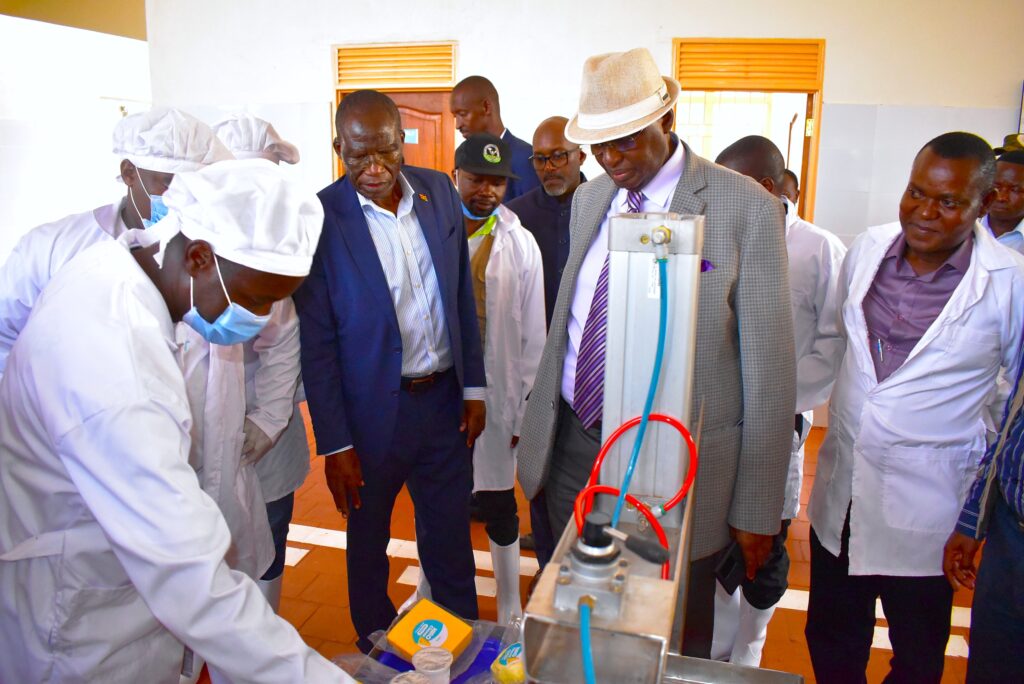
Adding that; “Modern farming is not about how many cattle you have, rather the rate of productivity. Focus should be on rearing better cattle breeds especially those that are resilient to our local weather.”
Mr. Kwesigabo Johnson, the Board Chairman for Dwaniro Dairy and Livestock Cooperative Society, described the launch of the processing plant as a milestone for the Cooperative.
“We shall be able to process 4,000 liters of milk daily. And it is a very important symbol for us as farmers, that things can happen. That we can add value, go on the market, and have a product that can be accepted,” Mr. Kwesigabo remarked.
“Uganda Development Bank (UDB) has been our main financier for the Cooperative. Individually, the farmers are too small to take advantage of the funding facilities in UDB. What we do, we borrow as a cooperative and we can lend this money in small amounts to the farmers.”
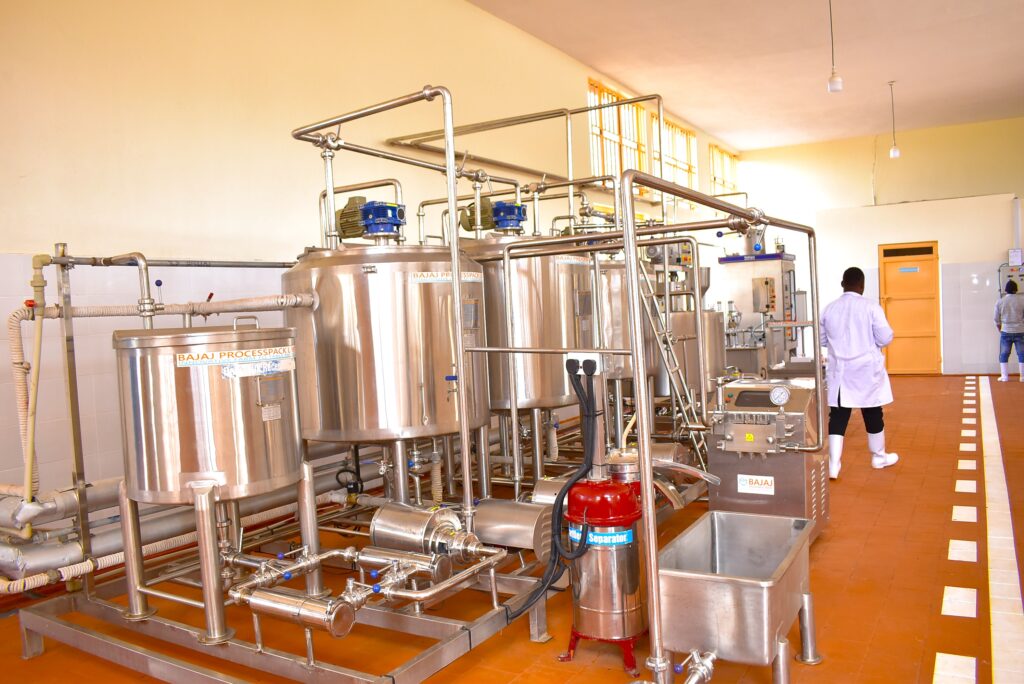
The farmers have used the loans to buy high-quality animals, to provide water by constructing valley dams, and to improve their pastures.
Kwesigabo reported to the Minister that the Cooperative Society has been very compliant in servicing the three rounds of credit facilities – UGX400 million, UGX800 million, and UGX1.5 billion – provided by Uganda Development Bank.
“And this confidence we have from UDB has been one of our encouraging strengths to move to where we are,” he said.
Beyond extending loans, UDB also supports Cooperatives by providing them with business advisory services. Out of the UGX610 billion that UDB disbursed to various projects last year, 30.6 percent (UGX187 billion) went into projects agro-industrialization.
Enterprises supported by UDB contributed approximately UGX236 billion in direct domestic taxes in 2023 with manufacturing making up 47% of this, agro-processing 27.9% and primary agriculture 15%.
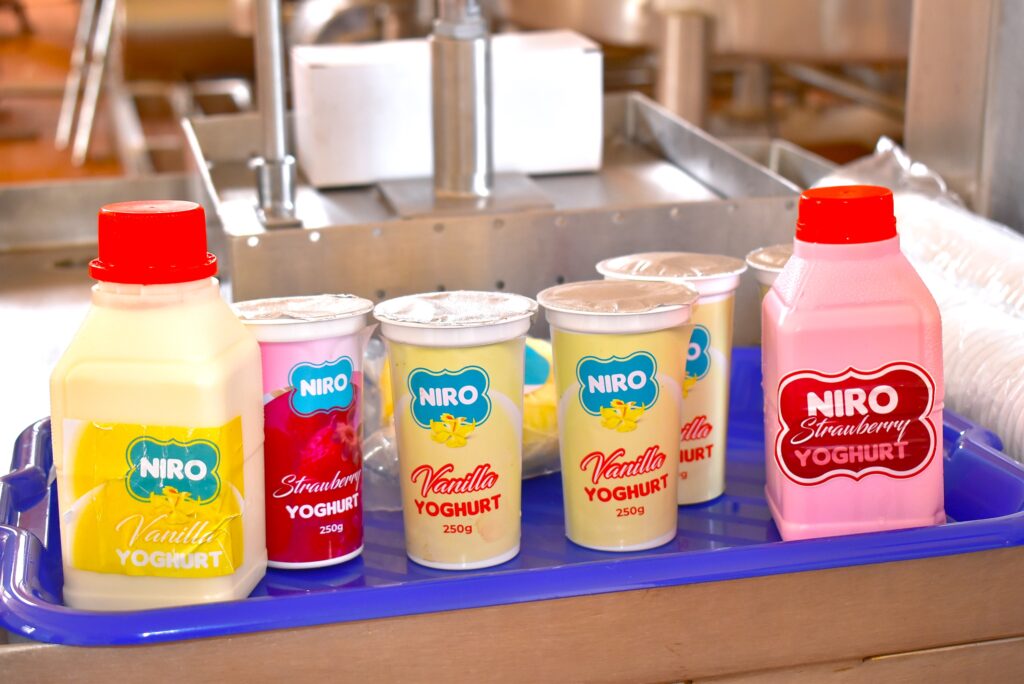
At least 51,841 jobs were created and maintained from the Bank-funded projects. Of these jobs, a significant share (39%) was under primary agriculture, 32% in agro-processing and 16% in manufacturing.
Dwaniro Dairy and Livestock Cooperative Society started in 2009 with only 15 members collecting 2,000 liters of milk daily but has since expanded to bulking over 35,000 liters of milk daily. Though the current membership stands at 400, the Cooperative serves over 800 farmers in Bukomero.
The bulk, about 80 percent, of the milk produced by the farmers in the community is procured by Jesa, a leading dairy processing company that produces fresh milk, Extended Shelf Life (ESL) milk, Flavoured milk yogurt, Butters, Bonga Yoghurt and cream.
Dwaniro is part of the eight mini dairy processing plants that the government has helped establish, the others being in Kyankwanzi, Kamuli, Kamwenge, Isingiro, Ntungamo, Kabale, and Kabarole districts.
The Cooperative is only one of the 45,000 Cooperatives that are currently registered in Uganda with over 18 million members.
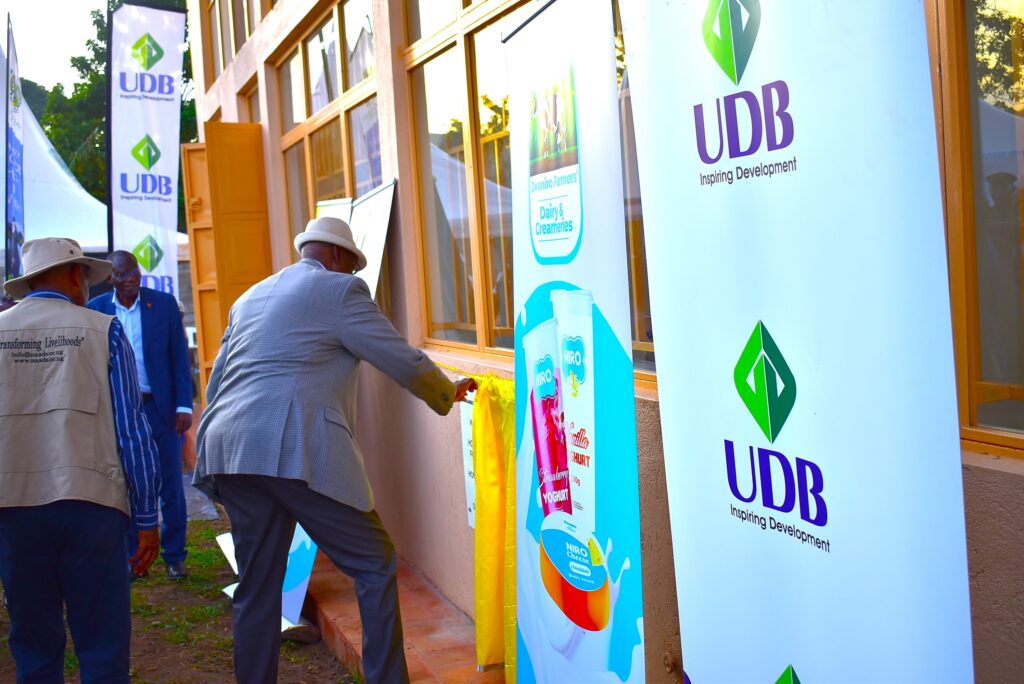
The Minister urged the Cooperative to identify representatives who will be trained by the Ministry of Agriculture in artificial insemination as part of initiatives to support farmers increase their livestock productivity. The Ministry will provide the trainees with the necessary equipment.
“I want to stress the issue of handling the milk with the highest standards. The international market is very keen on quality.”
Quoting the World Health Organization (WHO) recommendations, the Minister said a normal person’s average consumption of milk should be 200 liters each year.
“But in Uganda, our average consumption level is 64 liters which is very low. Since we don’t consume the milk we produce, we must find a market for it elsewhere, but this requires high standards,” Hon. Rwamirama concluded.
The event was also attended by Dr. Samuel Mugasi, the Executive Director of National Agricultural Advisory Services (NAADS), Samson Mpiira, the Executive Director of Dairy Development Authority (DDA), Hajj Ddumba Moses, the RDC of Kiboga among other dignitaries.
